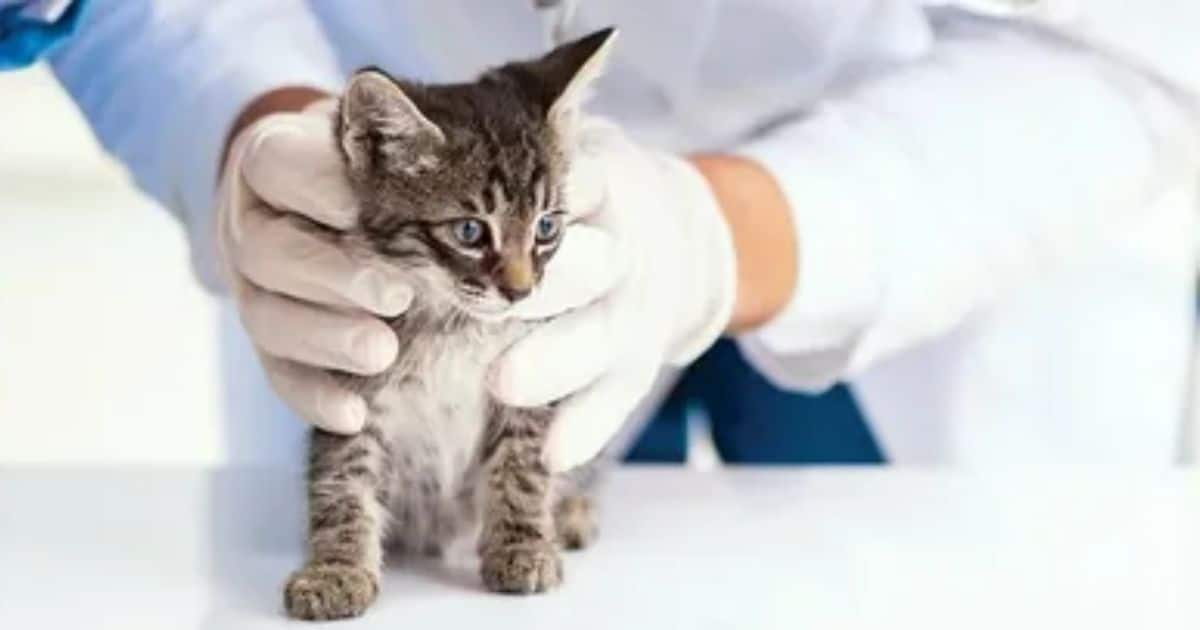If you’re a pet parent, you’ve probably wondered at some point, “Have I missed the boat on getting Fluffy or Fido fixed?” It’s a common concern, and for good reason. Spaying or neutering your furry friend dog or cat is a big decision, and timing can play a crucial role. But here’s the kicker: there’s no one-size-fits-all answer. Let’s dive into the nitty-gritty of when to snip and why it matters.
Getting Your Pet Fixed: What’s the Big Deal?
First things first: why should you even consider spaying or neutering your pet? Well, buckle up, because the benefits are pretty darn impressive.
The Perks of the Snip
- Population Control: Let’s face it, we’ve got enough adorable furballs in shelters already.
- Health Boosts: Reduced risk of certain cancers? Yes, please!
- Behavior Bonanza: Say goodbye to spraying, humping, and those midnight yowling concerts.
But here’s the rub: waiting too long can be a bit of a gamble. Your pet might face increased cancer risks, surprise litters (oops!), and some not-so-charming behavioral quirks.
“The decision to spay or neuter your pet is one of the most important decisions you’ll make as a pet owner.”
Dr. Jane Goodpaw, Veterinary Surgeon
Why We’re Recommending Spaying & Neutering Cats
Now, let’s talk about our feline friends. Cats are like tiny, furry ninjas – they’re stealthy, independent, and boy, can they multiply!
Feline-specific Benefits
- Reduced Roaming: No more worrying about Whiskers crossing six lanes of traffic for a date.
- Heat Cycle Elimination: Goodbye, yowling at 3 AM!
- Cancer Prevention: Significantly lower risks of mammary and testicular cancers.
But here’s a myth we need to bust: there’s no such thing as “too old” for cats. I’ve seen 10-year-old tabbies bounce back from surgery like kittens. It’s all about overall health, not the number of candles on their birthday fish.
When to Spay or Neuter Your Cat

Traditionally, vets have recommended the 6-month mark for kitty surgeries. But let’s break it down further:
| Age Group | Pros | Cons |
| Kittens (2-4 months) | Quick recovery, prevents first heat | Slightly higher anesthesia risk |
| Juveniles (4-6 months) | Ideal balance of benefits and risks | None significant |
| Adults (6+ months) | Fully developed, easier surgery | Possible learned behaviors |
| Seniors (7+ years) | Still beneficial for health | Slightly higher surgery risk |
Remember, even your distinguished 10-year-old gentleman cat can benefit from neutering. It’s never too late to improve quality of life!
Determining The Best Age to Spay or Neuter Your Dog
Dogs are a whole different ball game (pun intended). Size, breed, and gender all play a role in timing the big snip.
Size Matters
- Small Breeds: These pint-sized pooches mature faster. Many vets recommend spaying or neutering around 6 months.
- Large Breeds: Big dogs need more time to grow. Waiting until 12-18 months can be beneficial for joint health.
Gender Bender
- Males: Generally, they can be neutered a bit earlier than females of the same size.
- Females: Timing can be trickier. Some vets recommend spaying before the first heat, while others suggest waiting for one heat cycle.
“Each dog is unique. What works for a Chihuahua won’t necessarily be ideal for a Great Dane.”
Dr. Bark Twain, Canine Health Specialist
Health and Lifestyle Factors
Don’t forget to consider your dog’s individual circumstances:
- Active vs. Sedentary: Working or sporting dogs might benefit from later neutering to fully develop muscles.
- Pre-existing Conditions: Some health issues might influence surgical timing.
Factors in Favor of Waiting for a Little Longer Before Spaying & Neutering
Now, let’s play devil’s advocate for a moment. There are some solid reasons why you might want to hold off on that surgery appointment.
Growth and Development Concerns
- Bone and Joint Health: Hormones play a crucial role in bone density and joint formation.
- Muscle Mass: Intact males tend to have more muscle, which can be beneficial for working dogs.
- Metabolic Rate: Early neutering can affect metabolism, potentially leading to weight gain.
Breed-specific Considerations
Some breeds have unique needs. For example:
- Golden Retrievers: Studies suggest later neutering might reduce orthopedic issues.
- Rottweilers: Waiting until full maturity could decrease cancer risks.
Potential Health Trade-offs
It’s all about balance. While early spaying/neutering can reduce some health risks, it might increase others:
- Cancer Risks: Early spaying can decrease mammary cancer risk but might increase risks of other cancers in some breeds.
- Orthopedic Health: Later neutering may lead to better joint development in large breeds.
Dog Breeds & Age of Sexual Maturity
Understanding when your pup hits puberty can help inform your decision. Here’s a quick rundown:
- Small Breeds (Chihuahuas, Toy Poodles): 6-9 months
- Medium Breeds (Beagles, Cocker Spaniels): 8-12 months
- Large Breeds (Labrador Retrievers, German Shepherds): 12-18 months
- Giant Breeds (Great Danes, Mastiffs): 18-24 months
Remember, these are general guidelines. Your individual pup might be an early or late bloomer!
The Best Time to Spay or Neuter Your Unique Pet

So, after all this info, you might be thinking, “Great, but what about MY pet?” Well, here’s the secret sauce:
Consult Your Vet
Your veterinarian is your best ally in this decision. They know your pet’s health history, breed characteristics, and can provide tailored advice.
Balancing Act
Weigh the pros and cons for your specific situation:
- Health Risks: Consider breed-specific cancer and orthopedic risks.
- Behavior: Is your pet showing unwanted behaviors that neutering might help?
- Lifestyle: Are you equipped to handle an intact pet (like preventing unwanted breeding)?
Making the Call
Here’s a step-by-step guide to help you decide:
- Research your breed: Know the specific risks and benefits.
- Assess your pet’s health: Any pre-existing conditions to consider?
- Evaluate your lifestyle: Can you manage an intact pet responsibly?
- Consult your vet: Get professional, personalized advice.
- Trust your gut: You know your pet best.
Wrapping It Up
So, how old is too old to spay or neuter your dog or cat? The short answer: it’s rarely too late. The long answer: it depends on a whole host of factors unique to your pet.
Remember, the goal is to give your furry friend the best quality of life possible. Whether they’re a sprightly kitten, a middle-aged mutt, or a distinguished senior pet, there’s likely a spay or neuter option that’s right for them.
Don’t let analysis paralysis set in. Talk to your vet, do your homework, and make the best decision for your four-legged family member. After all, they’re counting on you to be their advocate.
Now, go give your pet a scratch behind the ears. They deserve it for putting up with all this talk about their private parts!
MORE POST: How Long Can A Cat Go Without Peeing? A Comprehensive Guide For Cat Owners
FAQ’s
At what age is it too late to spay a female cat?
It’s rarely too late to spay a female cat. As long as she’s healthy, cats can be safely spayed at any age. However, older cats may need extra pre-operative tests and care.
Is it safe to spay a 14 year old dog?
While riskier than for younger dogs, it can be safe to spay a 14-year-old dog if she’s in good health. Your vet should perform thorough pre-surgical screenings. The benefits often outweigh the risks, even for senior dogs.
Is a 10 year old cat too old to spay?
A 10-year-old cat isn’t too old to spay. Many cats this age handle the surgery well. Your vet will assess her health and discuss any increased risks, but age alone isn’t a barrier.
Should I put my 15 year old dog through surgery?
It depends on the dog’s health and the surgery’s necessity. For critical procedures, even 15-year-old dogs can be candidates. Discuss risks, benefits, and quality of life implications with your vet before deciding.
What happens if you spay a dog too late?
Late spaying may increase cancer risk and complicate surgery due to developed reproductive organs. It can also lead to behavioral issues if hormonal cycles have already begun.
What happens if you wait too long to neuter your dog?
Delaying neutering can result in unwanted behaviors like marking and aggression. It may also increase the risk of certain cancers and prostate problems in male dogs.
At what age is it too late to neuter a dog?
There’s no strict “too late” age, but most vets recommend neutering before 1-2 years. Senior dogs can still be neutered, though benefits may be reduced.
Is it risky to neuter an older dog?
Neutering older dogs carries slightly higher surgical risks due to age-related health issues. However, it’s generally safe with proper pre-operative screening and care.

Davin Connor is an experienced author with 3 years in pets writing. Known for concise, informative content, he shares expertise on pet care, behavior, and health through his engaging articles.






